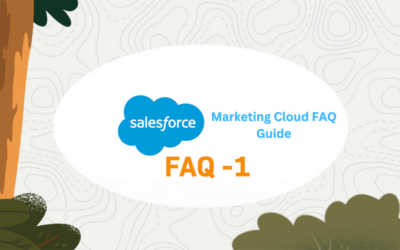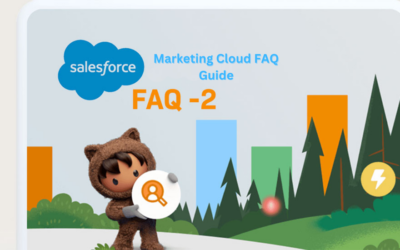HubSpot Revenue Operations (RevOps). In a business landscape that’s becoming increasingly dynamic and customer-centric, RevOps is the compass guiding organizations to navigate the intricate maze of marketing, sales, and customer support. It’s not just about adopting a platform; it’s about shaping a mindset that aligns different facets of a company’s operations, uniting them under the common banner of revenue growth. HubSpot, a pioneer in the field of inbound marketing, emerges as a formidable ally in this journey, offering an integrated suite of tools that empower businesses to streamline their operations, personalize customer experiences, and make data-driven decisions. It’s a journey where silos are shattered, customer relationships are strengthened, and revenue becomes more than just a metric—it’s a testament to a business’s ability to adapt, evolve, and thrive.
As we embark on this exploration, we’ll delve into the heart of HubSpot RevOps, uncovering the core concepts, strategies, and best practices that drive growth in today’s digital age. RevOps is more than just a buzzword; it’s a paradigm shift. It’s the art of harnessing data, the science of customer engagement, and the philosophy of collaboration. The path to mastering HubSpot RevOps is marked by learning, adaptation, and innovation, and it’s a journey where the destination isn’t a fixed point but a continually evolving state of excellence. Join us as we unravel the intricate tapestry of RevOps strategies and how HubSpot serves as the enabler, propelling businesses toward a future where growth is not just a possibility but a certainty. If you need assistance with Salesforce CRM setup and optimization, companies like CRM Force can provide valuable expertise and support.
1- What role does lead nurturing play in HubSpot CRM, and how does it support RevOps goals?
Answer: Lead nurturing within HubSpot CRM involves using automated workflows to deliver relevant content to leads based on their stage in the buying journey. This is essential for RevOps as it keeps leads engaged and guides them toward conversion. By providing valuable information and maintaining regular contact, lead nurturing increases the likelihood of turning leads into customers. Additionally, nurturing existing customers can foster loyalty, leading to repeat business and referrals.
2- How does HubSpot CRM streamline communication within RevOps teams and with customers?
Answer: HubSpot CRM acts as a central hub for communication within RevOps teams. It tracks all interactions with customers, including emails, calls, and notes, ensuring that everyone is on the same page and delivering consistent messaging. This centralized communication is vital for RevOps as it streamlines operations and improves the customer experience. The ability to access a complete history of interactions with a customer allows teams to provide more personalized support and maintain a coordinated approach to RevOps strategies.
3- How can HubSpot’s analytics tools help RevOps teams measure campaign success?
Answer: HubSpot’s analytics tools offer in-depth insights into the performance of marketing and sales campaigns. They allow RevOps teams to track key metrics such as conversion rates, lead acquisition costs, and return on investment (ROI). By closely monitoring these metrics, RevOps teams can assess the success of their campaigns, identify areas for improvement, and make data-driven decisions to optimize their strategies and drive revenue growth.
4- What is HubSpot’s attribution reporting, and why is it valuable for RevOps strategies?
Answer: Attribution reporting in HubSpot is a valuable tool for understanding how different marketing and sales touchpoints contribute to conversions. It helps RevOps teams identify which channels, content, and interactions are most effective in driving revenue. This insight enables businesses to allocate resources more effectively and prioritize strategies that yield the best results. In a highly competitive business landscape, this level of understanding is crucial for optimizing RevOps strategies.
5- How can HubSpot’s dashboard feature be used to visualize data and KPIs for RevOps teams?
Answer: HubSpot’s dashboard feature is a highly valuable tool for RevOps teams. It enables them to create custom dashboards that visualize key performance indicators (KPIs) and other essential metrics. This visualization helps RevOps professionals get a quick and clear view of their performance, allowing for timely adjustments and informed decisions. Custom dashboards can be tailored to track the specific metrics that matter most to your business, making them a powerful asset for optimizing RevOps strategies.
6- What are workflows in HubSpot, and how can they streamline RevOps processes?
Answer: Workflows in HubSpot are automation sequences that allow businesses to automate various processes based on user behavior and characteristics. They can be used to nurture leads through the sales funnel, segment contacts, send personalized messages, and perform a wide range of other tasks. Workflows are vital for RevOps because they streamline processes, reduce manual labor, and ensure that the right actions are triggered at the right time. By automating repetitive tasks and guiding leads through their journey, RevOps teams can improve efficiency and customer engagement.
7- How can HubSpot’s marketing automation improve lead scoring in RevOps?
Answer: Marketing automation in HubSpot plays a crucial role in improving lead scoring for RevOps strategies. It allows businesses to create lead scoring systems that assign values to leads based on their behavior and engagement. For example, opening an email or visiting a pricing page may increase a lead’s score. When a lead reaches a certain score, they are considered “sales-ready.” This automated lead scoring system ensures that the sales team focuses its efforts on the most promising leads, resulting in more efficient and effective sales processes.
8- How can HubSpot workflows be used to nurture leads effectively?
Answer: HubSpot workflows are powerful tools for lead nurturing. They allow businesses to set up automated sequences that send leads the right content at the right time based on their behavior and stage in the buying journey. For example, a lead who downloads an eBook may receive a follow-up email with related content, and if they continue to engage, they can be moved to more advanced nurturing tracks. This personalized approach keeps leads engaged and guides them toward conversion, making lead nurturing a fundamental part of effective RevOps strategies.
9- How can HubSpot CRM be customized to align with specific business needs in RevOps?
Answer: HubSpot’s CRM is highly customizable, allowing businesses to align it with their specific needs. This customization can involve creating custom properties to capture unique data, designing contact properties that match your customer profile, and utilizing HubSpot’s API to integrate with other systems and extend functionality. This level of customization is essential for RevOps because it ensures that the CRM serves as a flexible and powerful tool to support your unique strategies and objectives.
10- What are the advantages of integrating HubSpot with other business tools, and how can it affect RevOps strategies?
Answer: Integrating HubSpot with other business tools offers several advantages for RevOps. It creates a seamless ecosystem where data flows effortlessly between systems. For example, integrating with e-commerce platforms can provide a complete view of customer transactions, helping RevOps teams analyze buying behavior. Integrating payment gateways simplifies financial transactions, and integrating with analytics tools offers deeper insights into customer behavior. These integrations enable RevOps teams to make more informed decisions, improve customer experiences, and drive revenue growth.
11- How can HubSpot facilitate data migration from existing systems to support RevOps operations?
Answer: Transitioning to a new system like HubSpot may involve migrating data from existing systems. HubSpot simplifies this process by offering data import tools that allow you to import contact records, leads, and other critical information. Additionally, HubSpot provides expert support to guide businesses through the data migration process. This is crucial for RevOps operations because it ensures a smooth transition without data loss, enabling a seamless flow of information for marketing, sales, and customer support teams.
12- How does HubSpot ensure the security of customer data, and why is this important for RevOps strategies?
Answer: HubSpot places a strong emphasis on data security to protect customer data. This includes data encryption, access controls, and adherence to industry best practices. This is essential for RevOps strategies because it ensures the integrity and confidentiality of customer information. Data breaches or security lapses can disrupt RevOps operations, damage customer trust, and potentially result in legal and financial consequences. By maintaining robust security measures, HubSpot helps RevOps teams operate with confidence and focus on revenue growth.
13- What compliance standards does HubSpot adhere to, and how does it affect data handling in RevOps operations?
Answer: HubSpot adheres to data protection regulations such as the General Data Protection Regulation (GDPR), which sets strict standards for handling customer data. Complying with these regulations is critical for RevOps operations. It necessitates practices like obtaining consent for data processing, respecting data subject rights, and ensuring secure data storage and transmission. Adherence to these standards protects customer privacy, minimizes the risk of legal penalties, and enhances the trust of customers, all of which are crucial for successful RevOps strategies.
14- What training resources does HubSpot offer for its users, and why is training essential for RevOps teams?
Answer: HubSpot offers extensive training resources to help users master its platform. These resources include certifications, courses, webinars, and a comprehensive knowledge base. Training is essential for RevOps teams because it equips them with the knowledge and skills needed to leverage HubSpot’s full potential. The platform’s diverse features require a deep understanding to optimize RevOps strategies fully. By investing in training, RevOps teams can ensure that they’re making the most of HubSpot to drive revenue growth.
15- How does HubSpot’s customer support function, and why is it essential for RevOps teams?
Answer: HubSpot provides customer support through various channels, including email, chat, phone, and an extensive online community. Timely and effective customer support is essential for RevOps teams because any operational disruptions can directly impact revenue generation. Whether it’s troubleshooting technical issues, seeking advice on strategy, or resolving user questions, having access to responsive support ensures that RevOps operations run smoothly and efficiently.
16- What are some best practices for email marketing using HubSpot, and how can they enhance RevOps strategies?
Answer: Email marketing is a powerful tool in the RevOps toolkit, and HubSpot offers best practices to enhance its effectiveness. These practices include personalization of email content to make it relevant to recipients, A/B testing to optimize email subject lines and content, and segmenting email lists to send targeted messages. By following these best practices, RevOps teams can improve email engagement, conversion rates, and revenue generation.
17- What are the best practices for lead nurturing with HubSpot workflows, and how can they contribute to RevOps goals?
Answer: Lead nurturing is a critical aspect of RevOps strategies, and HubSpot workflows provide the means to excel in this area. Best practices for lead nurturing in HubSpot involve creating tailored content that guides leads through the buyer’s journey. Behavior-triggered workflows ensure that the right content is delivered at the right time. Analyzing the results of lead nurturing efforts allows for continuous improvement. By following these best practices, RevOps teams can increase lead conversion rates, improve customer satisfaction, and ultimately drive revenue growth.
18- How can RevOps teams evaluate the success of HubSpot CRM for customer relationship management?
Answer: To measure the success of HubSpot CRM for customer relationship management, RevOps teams can assess the organization of customer data within the CRM, tracking of interactions and engagements, and how effectively the CRM contributes to revenue generation. A successful HubSpot CRM implementation should result in improved customer relationships, streamlined operations, and increased revenue.
19- What are the key performance indicators (KPIs) to monitor for evaluating the effectiveness of HubSpot Sales Hub in RevOps strategies?
Answer: Key performance indicators (KPIs) play a vital role in evaluating the effectiveness of HubSpot Sales Hub in RevOps strategies. These KPIs include lead conversion rates, which measure how effectively leads are turned into customers; sales velocity, which indicates the speed at which deals move through the pipeline; and revenue growth, which assesses the direct impact of Sales Hub on the bottom line. Monitoring these KPIs helps RevOps teams determine the success of their strategies and identify areas for improvement.
20- What reporting tools does HubSpot offer for RevOps teams to measure success and ROI?
Answer: HubSpot offers a comprehensive suite of reporting tools designed to help RevOps teams measure the success of their strategies and calculate return on investment (ROI). These tools include custom reports that allow you to tailor data to your specific needs, dashboards that provide at-a-glance views of performance, and attribution reports that reveal the impact of different marketing and sales channels on revenue. By leveraging these reporting tools, RevOps teams can make data-driven decisions, optimize their strategies, and ensure that their efforts contribute to revenue growth.
Conclusion
In conclusion, the journey through HubSpot RevOps is a dynamic and transformative one, empowering businesses to unlock their full potential in the digital age. The insights shared in this comprehensive blog, spanning 66 detailed questions and answers, showcase the intricate web of strategies, tools, and best practices that comprise an effective RevOps approach. It’s not merely about adopting a platform; it’s about shaping a mindset that aligns marketing, sales, and customer support into a seamless, revenue-generating machine. By weaving together the threads of marketing automation, lead nurturing, CRM management, and data-driven decision-making, HubSpot paves the way for organizations to not only thrive but excel in the competitive business landscape.
The journey of mastering HubSpot RevOps is ongoing, marked by continuous learning, adaptation, and innovation. As RevOps professionals, you’re not just in the business of operations; you’re in the business of growth. Your customers demand personalized experiences, your teams require streamlined processes, and your bottom line depends on data-driven decisions. HubSpot stands as both a partner and a tool in this journey, providing a framework for aligning your strategies and the means to measure success. It’s a journey of collaboration, agility, and constant improvement—a journey that ultimately leads to sustainable revenue growth and the realization of your business’s full potential in the digital era. To learn more about how CRM Force can assist you in recruiting top CRM talent and optimizing your CRM strategies for successful drip campaigns, contact us today. Together, let’s maximize your customer engagement Contact Us today.





